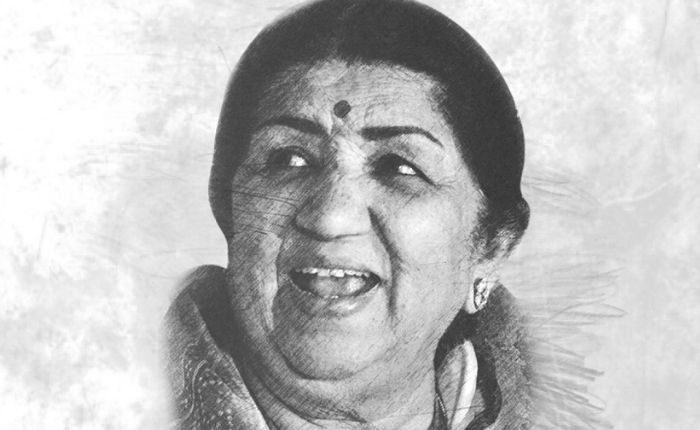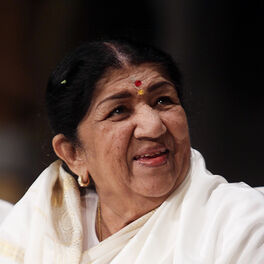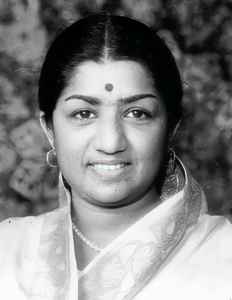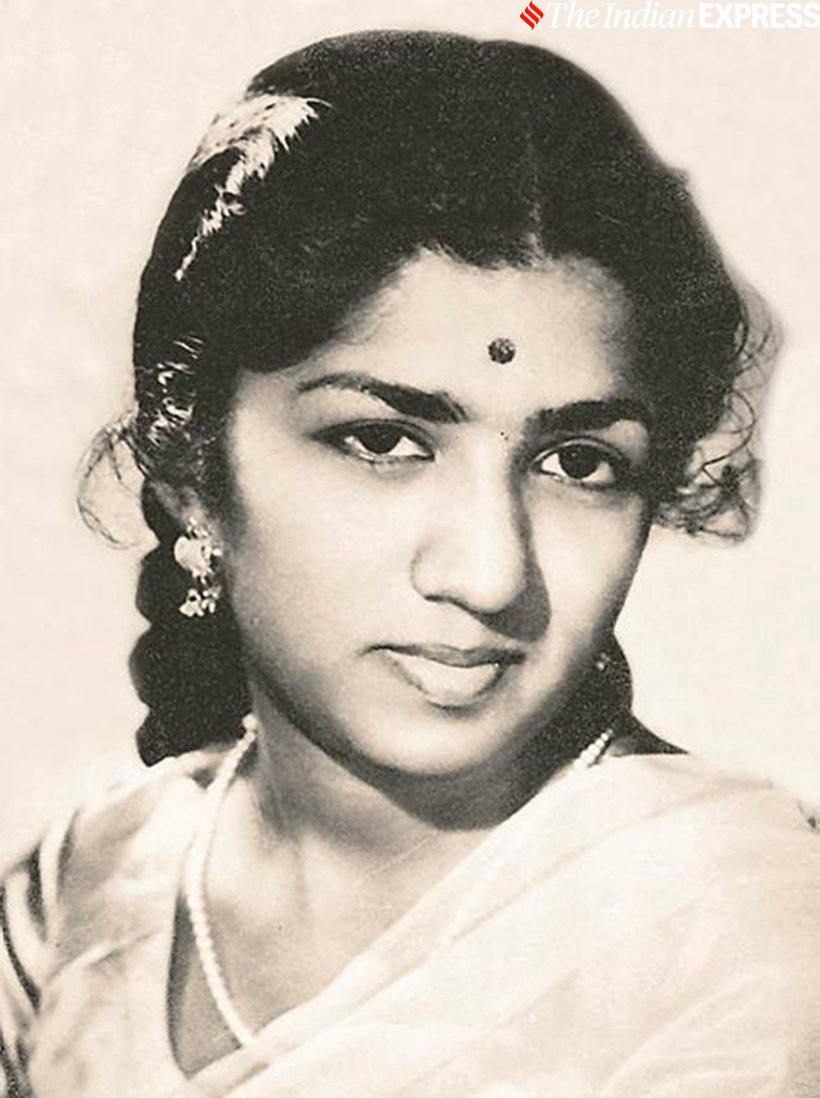Lata Mangeshkar
Lata Mangeshkar

Lata Mangeshkar, born Hema Mangeshkar on 28 September 1929 and passing away on 6 February 2022, was an iconic Indian playback singer and occasional music composer. Renowned as one of the greatest and most influential singers of the Indian subcontinent, her voice was celebrated as a unifying force across South Asia. Throughout her illustrious career spanning eight decades, Mangeshkar's contribution to the Indian music industry earned her numerous honorific titles including "Queen of Melody," "Nightingale of India," and "Voice of the Millennium."
Mangeshkar's versatility was evident in her recordings, which spanned over thirty-six Indian languages as well as a few foreign languages, with a primary focus on Hindi, Bengali, and Marathi. Her exceptional talent was recognized with prestigious awards and honors. In 1989, she was honored with the Dadasaheb Phalke Award by the Government of India, followed by the Bharat Ratna in 2001, making her the second singer to receive India's highest civilian honor. France also acknowledged her contributions by awarding her the Officer of the National Order of the Legion of Honour in 2007.
Throughout her career, Mangeshkar received numerous awards, including three National Film Awards, 15 Bengal Film Journalists' Association Awards, four Filmfare Best Female Playback Awards, and the Filmfare Lifetime Achievement Award, among others. In a groundbreaking moment, she became the first Indian playback singer to perform at the prestigious Royal Albert Hall in London in 1974.
Mangeshkar's unparalleled impact on the music industry is evident in her recognition by the Guinness World Records as the most recorded artist in history, a distinction later surpassed by her sister, Asha Bhosle. Lata Mangeshkar's legacy continues to inspire generations of musicians and fans worldwide.
Lata Mangeshkar, born on 28 September 1929 in Indore, hailed from a Brahmin family with diverse cultural influences. Her father, Deenanath Mangeshkar, was a respected Marathi and Konkani classical singer and theater actor. Deenanath's lineage traced back to Ganesh Bhatt Bhikoba Navathe Hardikar, a Karhade Brahmin and priest at the renowned Mangeshi Temple in Goa. Deenanath's mother, Yesubai, was from the Devadasi community of Goa, known for their musical talents.
Lata's mother, Shevanti (later named Shudhamati), was a Gujarati woman from Thalner in the Bombay Presidency. Shevanti, Deenanath's second wife, came from a prosperous background, with her grandfather, Seth Haridas Ramdas Lad, being a prominent businessman and landlord. Lata's maternal lineage enriched her upbringing with Gujarati folk songs and cultural traditions.
Initially named "Hema" at birth, Lata was later renamed after a character in one of her father's plays, becoming Lata. She was the eldest among her siblings, including Meena, Asha, Usha, and Hridaynath, all of whom grew up to be accomplished singers and musicians.
Lata's musical journey began under her father's guidance, receiving her first music lesson from him. At the age of five, she ventured into acting in her father's musical plays, showcasing her talent from an early age. However, her formal schooling faced obstacles when she was not permitted to bring her sister Asha along, leading to her departure from school on the first day.
Lata Mangeshkar's upbringing reflects a rich tapestry of cultural heritage and musical influences that laid the foundation for her legendary career in playback singing.
Lata Mangeshkar's journey into the world of music began amidst personal loss and professional challenges. In 1942, at the age of 13, her father passed away due to heart disease. Master Vinayak, a family friend and the owner of Navyug Chitrapat movie company, extended his support to the Mangeshkar family during this difficult time. Under his guidance, Lata embarked on her career as a singer and actress.
Her initial foray into the world of music saw her singing for Marathi and Hindi films. Despite her early interest in singing, Lata had to initially focus on acting, which she found discomforting due to the environment on film sets. However, her passion for singing persisted, and she moved to Mumbai in 1945 to pursue Hindustani classical music lessons under Ustad Aman Ali Khan of the Bhindibazaar Gharana.
Lata's talent as a singer began to flourish, and she secured her first major break with the song "Dil Mera Toda, Mujhe Kahin Ka Na Chhora" in the movie Majboor (1948), under the mentorship of music director Ghulam Haider. Despite initial skepticism from producers, Haider recognized Lata's potential and predicted her future success in the industry.
Lata's distinctive singing style, characterized by her soprano range voice and emotive delivery, soon captivated audiences across India. She broke new ground in playback singing, bringing a unique blend of modernity and tradition to her performances. Her ability to shape melodies and infuse emotions into her songs set her apart in the music industry.M3Z4.png)
One of Lata's earliest major hits was the iconic song "Aayega Aanewaala" from the movie Mahal (1949), composed by Khemchand Prakash and featuring actress Madhubala on screen. This song catapulted her to fame and marked a significant milestone in the recognition of playback singers in Indian cinema.
Despite facing initial challenges and criticisms, Lata Mangeshkar's dedication, talent, and perseverance paved the way for her legendary status in the world of music. She not only became an icon in Indian playback singing but also revolutionized the role and recognition of playback singers in the industry.
References
- "Playlist Ghazals – Lata Mangeshkar on Gaana.com". Gaana.
- ^ "Lata releases first Sufi album, credits nephew" https://www.freepressjournal.in/amp/entertainment/lata-releases-first-sufi-album-credits-nephew
- ^ "Playlist Bhakti By Lata Mangeshkar on Gaana.com". Gaana.
- ^ "Playlist Bengali Folk Songs of Lata on Gaana.com". Gaana.
- ^ "Lata Sings Gurbani Songs Download: Lata Sings Gurbani MP3 Punjabi Songs Online Free on Gaana.com" https://gaana.com/album/amp/lata-sings-gurbani.html Archived 7 June 2022 at the Wayback Machine
- a b "Lata Mangeshkar: The nightingale's tryst with Rabindra Sangeet". The Statesman. 28 September 2018. Retrieved 4 December 2018.
- ^ "Perjalanan Karir Lata Mangeshkar Hingga Peremuannya Dengan Rhoma Irama". Sonora.id. 8 February 2022. Retrieved 8 July 2022.
- ^ Bhagat, Shalini Venugopal (6 February 2022). "Lata Mangeshkar, Bollywood's Most Beloved Voice, Dies at 92". The New York Times. ISSN 0362-4331. Retrieved 27 April 2022.
- ^ "Lata Mangeshkar was the soundtrack of newly independent India". The Economist.










































